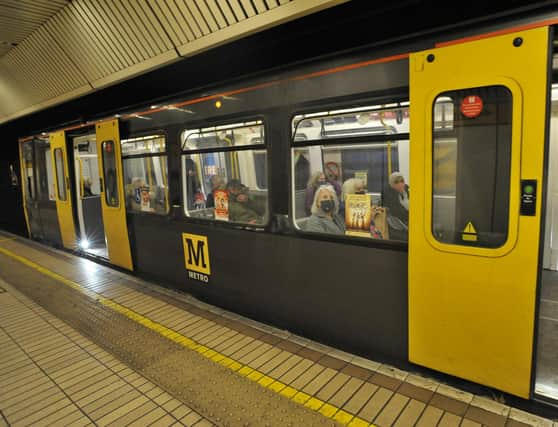Metro and Shields Ferry passengers face ticket price hikes - here's how some can dodge paying extra


The cost of single and day paper tickets purchased at Metro stations could jump by as much as 9.5% under proposals which will be put before councillors next week, while frequent travellers using weekly, monthly, and annual season tickets will see their costs rise by around 3%.
Advertisement
Hide AdAdvertisement
Hide AdSingle and day ticket prices are also set to increase on the Shields Ferry by 10%.
However, there is some relief for travellers with a Pop Pay As You Go (PAYG) smartcard, as its prices will be frozen for all single and daysaver passes.
Nexus chiefs have urged people to switch to the PAYG card, which can be topped up online and at stations, hoping that freezing its prices can help bring Metro patronage closer to pre-Covid levels and cut costs associated with printing tickets.
The cost of corporate season tickets is also being kept at its current level, as are prices on the 19-21 Pop card for young people.
Advertisement
Hide AdAdvertisement
Hide AdThere will also be a rare Metro zone boundary change, with the zone B/C boundary moving from Seaburn to East Boldon – meaning it will cost more to travel towards Newcastle from Seaburn, though there would be a reduction in costs for people going towards Sunderland from East Boldon.
Chief operating officer at Nexus, Martin Kearney, said that overall fare prices needed to go up “in order to help us to meet our running costs at a time when Nexus faces enormous financial challenges”, but hopes that the smartcard offer will come as some comfort.
He added: “We hope this will encourage people to make more frequent journeys, for a combination of leisure travel and commuting.
“There’s a great price incentive to make the switch to smart travel, and it’ll be even easier to use PAYG when it becomes available as an app on android phones. By making travel easy we hope to encourage customers to travel more often with Metro.”
Advertisement
Hide AdAdvertisement
Hide AdDespite passenger numbers having recovered to up to 85% of pre-pandemic rates, Nexus has warned that there is still a “significant gap between customer numbers now and where the Metro needs to be”.
The publicly-owned body has needed more than £50million of Government bailout money to keep services running during Covid because of its lost revenue, but that emergency support is due to come to an end in April – meaning Nexus is predicting a £20.8million shortfall in 2022/23.
Mr Kearney said that local transport chiefs are still “talking to ministers about our need for further help”, with fears over major cuts to some services if the government does not perform a U-turn.
He added: “Metro is a public service that doesn’t make a profit, so we require Government support alongside the revenue that we get from fares, all of which goes back into keeping Metro running.”
Advertisement
Hide AdAdvertisement
Hide AdThe proposed fare increases are set to be approved by the North East Joint Transport Committee’s Tyne and Wear sub-committee next Thursday, January 13.